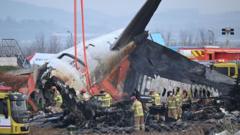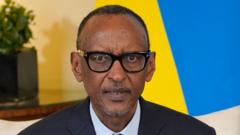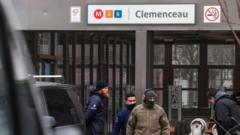The incident began with a greeting in both French and Dutch by a train attendant, which angered a Dutch-speaking passenger and led to a formal complaint. Belgium's Permanent Commission for Linguistic Control determined that the use of French was inappropriate in the Dutch-speaking region, underlining the complexities of the country's multilingual framework.
"Linguistic Tensions Emerge on Belgian Train Over Language Greeting"

"Linguistic Tensions Emerge on Belgian Train Over Language Greeting"
A train attendant's use of French alongside Dutch has sparked a debate over language etiquette in multilingual Belgium, highlighting regional sensitivities.
A train attendant's bilingual greeting of "goeiemorgen" and "bonjour" on a Belgian train during peak hours last year stirred controversy, bringing to light the intricacies of language use in the multilingual nation. The incident occurred at a train station in Vilvoorde, a city within the Dutch-speaking Flanders region, where one commuter, deeply perturbed by the French greeting, confronted the attendant, Ilyass Alba.
In the midst of rush hour, a Dutch-speaking passenger expressed his frustration, insisting that “bonjour” was inappropriate for the region. Mr. Alba, encountering a language barrier, attempted to clarify the situation in French, which only fueled the dispute. The Dutch passenger escalated the affair by filing a complaint with the Belgian government's Permanent Commission for Linguistic Control.
After five months of deliberation, the commission delivered its verdict in March, concluding that the complaint held merit. In their statement, they reiterated the need for the train attendant to primarily communicate in Dutch when addressing passengers in the Dutch-speaking area: “As soon as he knows the traveler’s language (French or Dutch), he will respond in that language.”
This incident underscores the delicate linguistic balance in Belgium, where Dutch, French, and German coexist as official languages. Tensions over language policy are not uncommon, illustrating how deeply entrenched regional identities can manifest in everyday interactions. As such debates continue to unfold, they may serve as a powerful reminder of the complexities inherent in a multi-language society.





















